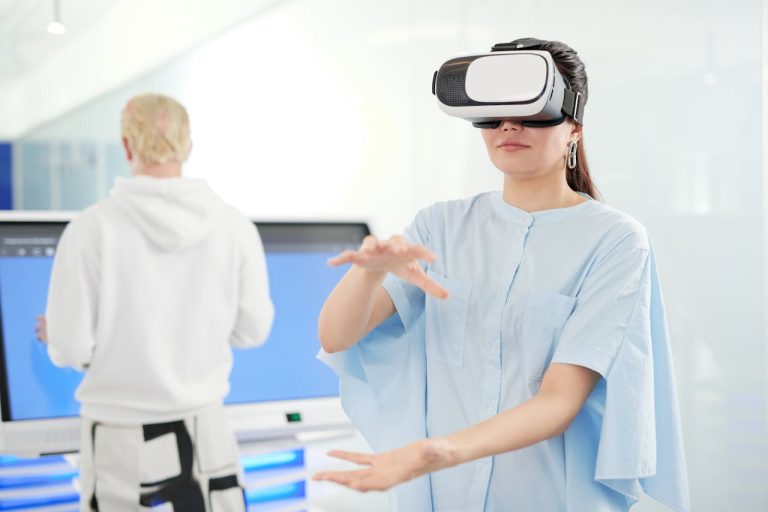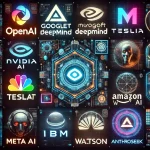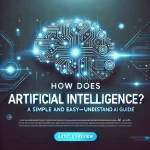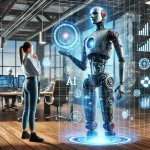The Rise of AI-Generated Content
Focus Keyword at the beginning:
AI-generated content is transforming the way businesses create and distribute digital content. The global AI content market is projected to exceed $100 billion by 2025, growing at an annual rate of over 30% (MarketsandMarkets).
From automated news reports to AI-generated videos, AI-powered tools like ChatGPT, Midjourney, and Runway ML are changing content creation. However, this rapid evolution raises critical questions:
- Will AI replace human content creators?
- Can AI-generated content maintain originality and authenticity?
- What are the legal and ethical concerns surrounding AI content?
This article explores the opportunities and challenges of AI-generated content, helping you navigate this technological shift.
I. Opportunities Brought by AI-Generated Content
1. Increased Content Creation Efficiency
One of the biggest advantages of AI-generated content is its speed and efficiency. What once took hours or days can now be done in seconds.
Case Study 1: AI in News Reporting
- The Associated Press (AP) has been using AI since 2015 to generate business earnings reports. AI now produces over 3,700 financial news reports per quarter, allowing journalists to focus on in-depth analysis.
Case Study 2: AI in Content Marketing
- Marketing giant HubSpot uses AI to generate ad copy and optimize A/B testing. Their AI-driven approach increased click-through rates by 23% and boosted conversion rates by 17% compared to manually written content.
2. Driving Business and Technological Innovation
AI-generated content is not just about speed—it also transforms business models across industries like advertising, e-commerce, and social media.
Case Study 3: AI in Advertising
- Coca-Cola leveraged AI-generated content for a global ad campaign, repurposing historical brand advertisements into new, engaging formats. AI personalization improved user engagement significantly.
Case Study 4: AI-Powered YouTube Content
- Many YouTube creators now use AI for voiceovers, automated editing, and AI-generated animations, increasing video production speed and monetization potential.
3. Lowering Barriers to Content Creation
AI empowers individuals without technical skills to produce high-quality content, whether it’s writing, design, or music.
Case Study 5: AI Enabling Independent Creators
- A blogger with no programming background used AI-generated Python code to build an automated social media management tool, increasing engagement by 40%.
- AI image-generation tools like Midjourney allow non-artists to create professional-grade illustrations for commercial use.
II. Challenges of AI-Generated Content
1. Copyright and Legal Issues
Is AI-generated content protected by copyright? This remains a gray area in legal discussions.
Case Study 6: U.S. Court Ruling on AI-Generated Content
- In 2023, the U.S. Copyright Office ruled that purely AI-generated works are not eligible for copyright protection, as they lack human authorship.
With no clear global standards, companies using AI-generated content must stay updated on legal developments to avoid potential disputes.
2. Misinformation and Ethical Concerns
AI can be used for deepfake technology, fake news, and even financial fraud, raising ethical concerns.
Case Study 7: AI-Generated Misinformation in the 2024 U.S. Election
- According to a BBC report, AI-generated political misinformation was widely circulated during the 2024 U.S. elections, eroding public trust in media sources.
To counteract this, platforms like Twitter (now X) and YouTube have started labeling AI-generated content and restricting harmful deepfake materials.
3. Content Authenticity and Quality Issues
While AI-generated content is improving, it still lacks creativity, originality, and emotional depth.
Case Study 8: BuzzFeed Abandoning AI-Generated News
- BuzzFeed experimented with AI-generated news in 2023 but stopped after readers criticized its lack of depth and originality.
III. My Perspective: AI as an Assistant, Not a Replacement
I believe AI-generated content will not fully replace human creativity in the short term but will serve as a powerful assistant.
- AI excels at data-driven content like reports, summaries, and ads.
- However, AI struggles with creative writing, storytelling, and emotional engagement, areas where human writers thrive.
- The future lies in collaboration—AI drafts content, and humans refine it.
Engage with Us!
Do you think AI-generated content will completely replace human writers? Are you excited about the opportunities AI brings, or concerned about the risks?
Share your thoughts in the comments below!
If you found this article helpful, like, share, and follow us for more insights on AI-generated content!







